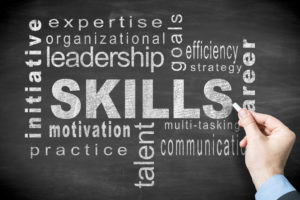Essential Leadership Skills for Challenging Times

November 6, 2020 – As the economy continues its rapid transition toward automation, the customer experience field requires strong leadership to keep customers engaged. Soft skills, such as communication and emotional intelligence, will be the skills that set the best leaders apart from the mediocre, according to a new report by Christopher Rios of Blue Rock Search.
According to Mr. Rios, there are a number of essential leadership soft skills that are most important in customer experience. Namely, communication, emotional intelligence, kindness, and respect.
Here’s a closer look:
Communication
“Great communication is one of the most essential interpersonal skills you can have,” said Mr. Rios. “The ability to communicate with clarity, honesty and confidence will help you avoid misunderstandings, gain the trust of your employees and customers, and build meaningful relationships.”
“As a leader, excellent communication also allows you to manage team members more efficiently,” he said. “Focus on creating a work culture that encourages employees to voice their opinions and concerns because it will create a more engaging work environment for everyone.”
 Christopher Rios leads the customer experience executive search practice at Blue Rock Search specializing in the identification, assessment, recruitment, and onboarding of C-suite customer experience executives and their teams. From chief CX strategists to mid-level managers, the search firm works with a deep well of customer experience experts across multiple sectors from a variety of industries.
Christopher Rios leads the customer experience executive search practice at Blue Rock Search specializing in the identification, assessment, recruitment, and onboarding of C-suite customer experience executives and their teams. From chief CX strategists to mid-level managers, the search firm works with a deep well of customer experience experts across multiple sectors from a variety of industries.
Emotional Intelligence
Emotional intelligence is another critical soft skill for successful leadership. “When you develop your emotional intelligence skills, you become more capable of identifying and regulating your emotions,” said Mr. Rios. “Honing emotional intelligence allows leaders to make more thoughtful decisions, empathize better with employees, become more receptive to feedback, and better understand what employees need from you in order to work to their full potential.”
Kindness
Mr. Rios said that the best leaders are kind and giving. “Instead of making decisions based on self-interest, they think about how decisions affect the company as a whole, including employees and customers,” he said. “It is important to give back to your team members. You weren’t always in a position of leadership.”
Related: Human Strengths Touted as the Solution to Challenges of the Skills Revolution
“Think about the lessons you learned on your path to management and the support that was provided to you along the way,” said Mr. Rios. “If you take the time to share the lessons you learned with your team members, you can gain their trust while also helping them to become more effective employees.”
Respect
When managers try to lead with compassion and generosity, they often go too far. “Maybe they struggle to say no so they take on more responsibility than they can handle, or they focus too much on providing positive feedback that they fail to provide constructive tips for improvement,” Mr. Rios said. “The trait that really matters is respect. Sometimes, you have to say no, or you have to give negative feedback, because you can’t run a productive business if you don’t. They key is to always be considerate. For example, when you give constructive feedback, don’t focus on what the employee is doing wrong. Instead, focus on what they can do to improve and how you plan on helping them become better.”
Soft skills are often even more important than technical skills when it comes to effective leadership in customer experience. “Soft skills enable you to communicate with employees in a way the maximizes their productivity, provide your team with the support they need to thrive, and establish an engaging work culture where everyone feels valued,” Mr. Rios said.
Related: Assessing Soft Skills to Land Your Next Top Hire
Contributed by Scott A. Scanlon, Editor-in-Chief; Dale M. Zupsansky, Managing Editor; and Stephen Sawicki, Managing Editor – Hunt Scanlon Media












